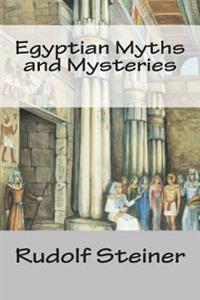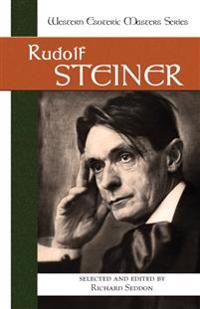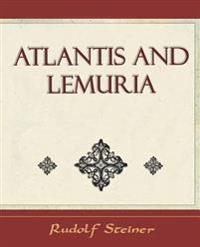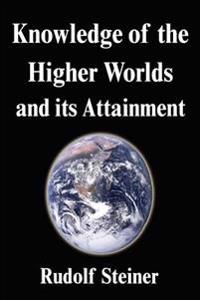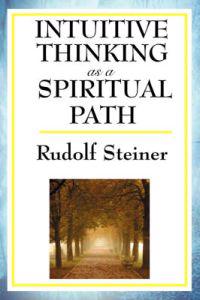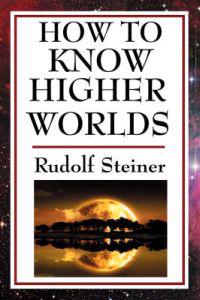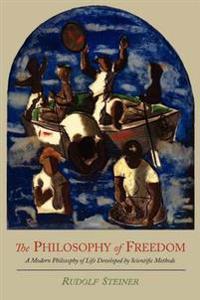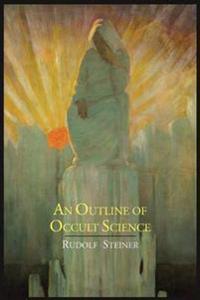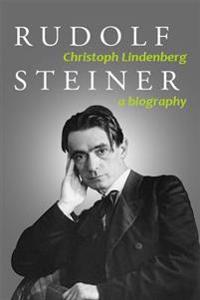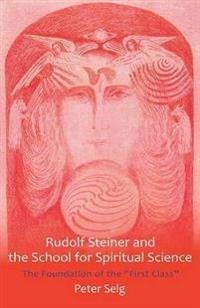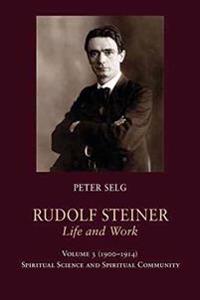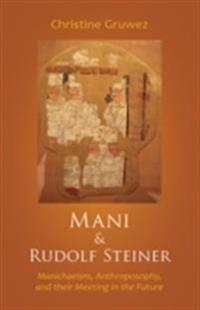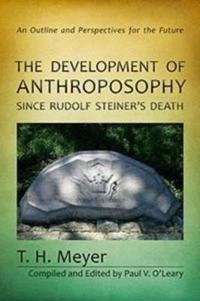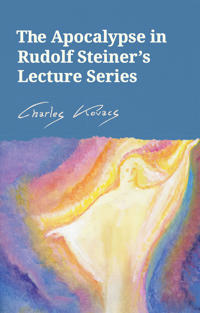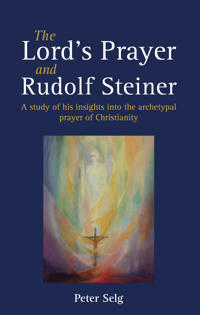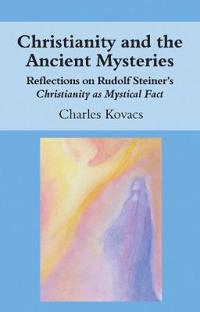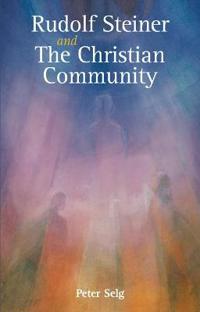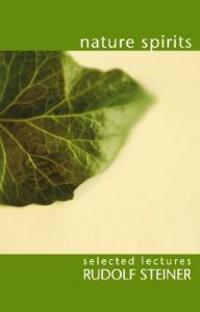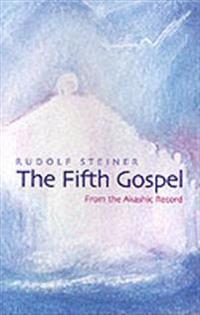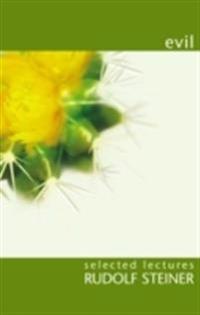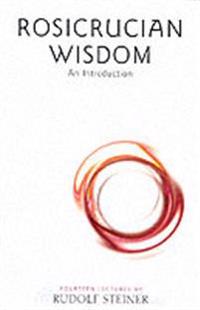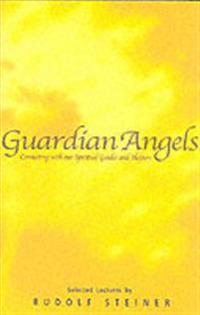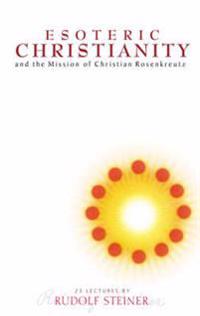Rudolf Steiner (Häftad)
avRichard Seddon
ISBN: 9781556434907 - UTGIVEN: 200412Anthroposophy is a worldwide spiritual movement based on the work of Rudolf Steiner, an Austrian philosopher, scientist, artist, and educator. Anthroposophy explains the world in terms of human spiritual nature. Humans have a special consciousness that provides direct access to higher spiritual trut[...]
Garden Wisdom and Know How (Häftad)
avRudolf Steiner
ISBN: 9781579128371 - UTGIVEN: 2010-04This is a complete home reference for everything you need to know about gardening - from soil and fertilisers to planting and landscaping. Chapters are organised by topic, including soil, seeds, composting, garden design, landscaping, sowing, planting, flowering plants, fruits, vegetables, herbs, pe[...]
Knowledge of the Higher Worlds and Its Attainment (Pocket)
avRudolf Steiner
ISBN: 9781599869025 - UTGIVEN: 2007-05Intuitive Thinking as a Spiritual Path (Pocket)
avRudolf Steiner
ISBN: 9781604593112 - UTGIVEN: 200804Rudolf Steiner (Inbunden)
avChristoph Lindenberg, Jon Mcalice, Christoph Lindenberg
ISBN: 9781621480150 - UTGIVEN: 201211Rudolf Steiner and the School for Spiritual Science (Häftad)
avPeter Selg
ISBN: 9781621480181 - UTGIVEN: 2012-10Rudolf Steiner, Life and Work: 1900-1914: Spiritual Science and Spiritual Community (häftad)
ISBN: 9781621480884 - UTGIVEN: 2015-06This third volume of Peter Selg's comprehensive presentation of Rudolf Steiner's life and work begins with Steiner's invitation to lecture in the Theosophical Society during the summer of 1900. From the outset of his theosophical involvement, Steiner was resolved to serve and develop the Western pat[...]
Mani and Rudolf Steiner (Häftad)
avChristine Grruwez, Christine Gruwez
ISBN: 9781621481089 - UTGIVEN: 2014-09Development of Anthroposophy Since Rudolf Steiner's Death (Häftad)
avT. H. Meyer, Paul V. O'Leary
ISBN: 9781621481164 - UTGIVEN: 2014-12The Apocalypse in Rudolf Steiner's Lecture Series
ISBN: 9781782500148 - UTGIVEN: 2013-11In 1908, Rudolf Steiner gave a series of lectures about the Book of Revelation. He showed that the messages to the seven churches and the unsealing of the seven seals should be understood as references to initiation. In this light, the great images of the Apocalypse take on new meaning. As well as b[...]
The Lord's Prayer and Rudolf Steiner (Pocket)
avPeter Selg, Peter Selg, Matthew (TRN) Barton, Peter Selg
ISBN: 9781782500513 - UTGIVEN: 2014-03'Your will be done, on earth as it is in heaven.' Rudolf Steiner once called the Lord's Prayer the 'greatest initiation prayer', and he spoke about it many times, also referring to it as the central prayer of Christian experience. This book is, however, the first time that all of Steiner's comments,[...]
Christianity and the Ancient Mysteries: Reflections on Rudolf Steiner's Christianity as Mystical Fact (häftad)
ISBN: 9781782504474 - UTGIVEN: 2018-01In 1902 Steiner wrote Christianity as Mystical Fact and the Mysteries of Antiquity, showing the evolutionary development from the ancient mysteries, through the great Greek philosophers, to the events portrayed in the gospels. Steiner saw the Christ event as the turning point in the world's spiritua[...]
Rudolf Steiner and The Christian Community (häftad)
ISBN: 9781782504818 - UTGIVEN: 2018-03The relationship between The Christian Community and the Anthroposophical Society is complex and often misunderstood. Christian Community priests work out of an understanding of anthroposophy, and it was undoubtedly Steiner's theological lecture courses which led to the formation of the movement. No[...]
Nature Spirits (Häftad)
avRudolf Steiner
ISBN: 9781855840188 - UTGIVEN: 199808In ancient times people were able to commune with nature spirits. These spirits -- "elemental beings" -- are familiar to us today in stories, legends and myths as, for example, fairies and gnomes. Based on his own highly developed clairvoyance, Rudolf Steiner contended that this aspect of traditiona[...]
The Fifth Gospel (Häftad)
avRudolf Steiner
ISBN: 9781855840393 - UTGIVEN: 199510From his clairvoyant reading of the Akashic Record -- the cosmic memory of all events, actions, and thoughts -- Rudolf Steiner was able to speak of aspects of the life of Jesus Christ that are not contained in the four biblical Gospels. Such research can be spoken of as a "fifth gospel." After an in[...]
Evil (Häftad)
avRudolf Steiner
ISBN: 9781855840461 - UTGIVEN: 200304In this selection of insightful lectures, Rudolf Steiner addresses the mystery of evil, offering a complex and original picture. Evil, he asserts, is a phenomenon that arises when something appears outside its true context. A thing which is initially "good, " therefore, can become "evil" when it is [...]
Rosicrucian Wisdom (Häftad)
avRudolf Steiner
ISBN: 9781855840638 - UTGIVEN: 200009One of Steiner's most complete introductions to modern spirituality. Based on the stream of Rosicrucian teaching -- not old ideas from historical tradition, but a wholly new contribution arising from the results of his experiential research -- he portrays the Rosicrucian path as most appropriate for[...]
Guardian Angels (Häftad)
avRudolf Steiner
ISBN: 9781855840737 - UTGIVEN: 2001-04As many people today are awakening to angelic guidance in their daily lives and are seeking it consciously, these lectures will help them to understand their experiences and to make their communication more conscious.[...]
Esoteric Christianity and the Mission of Christian Rosenkreutz (Pocket)
avRudolf Steiner
ISBN: 9781855840836 - UTGIVEN: 2001-06In addition to the outer manifestation of Christianity as we know it from history, there exists a second, hidden stream of Christian thought and development, sometimes referred to as 'esoteric Christianity' or 'Rosicrucian Christianity'. Displaying an intimate knowledge of his subject, Rudolf Steine[...]

